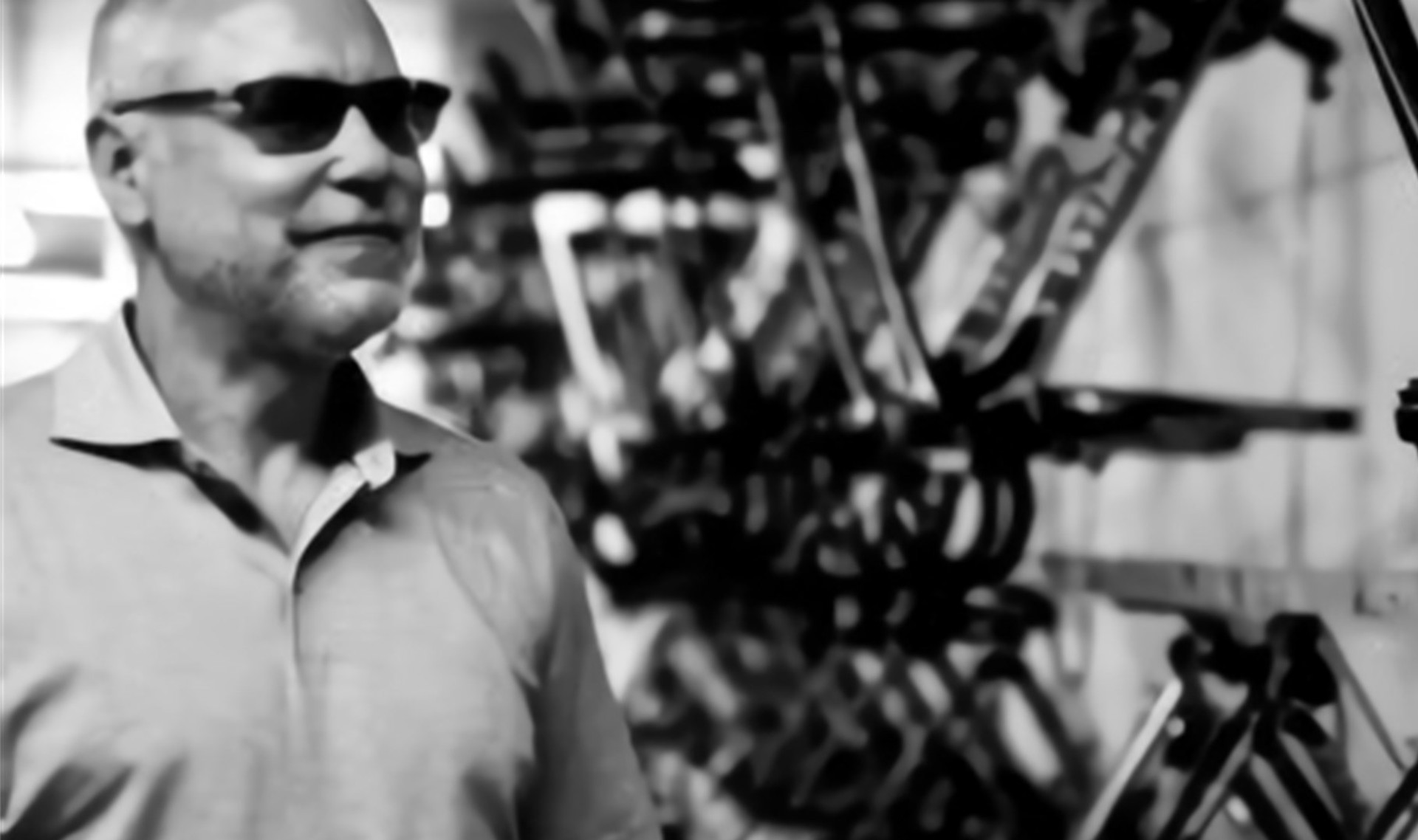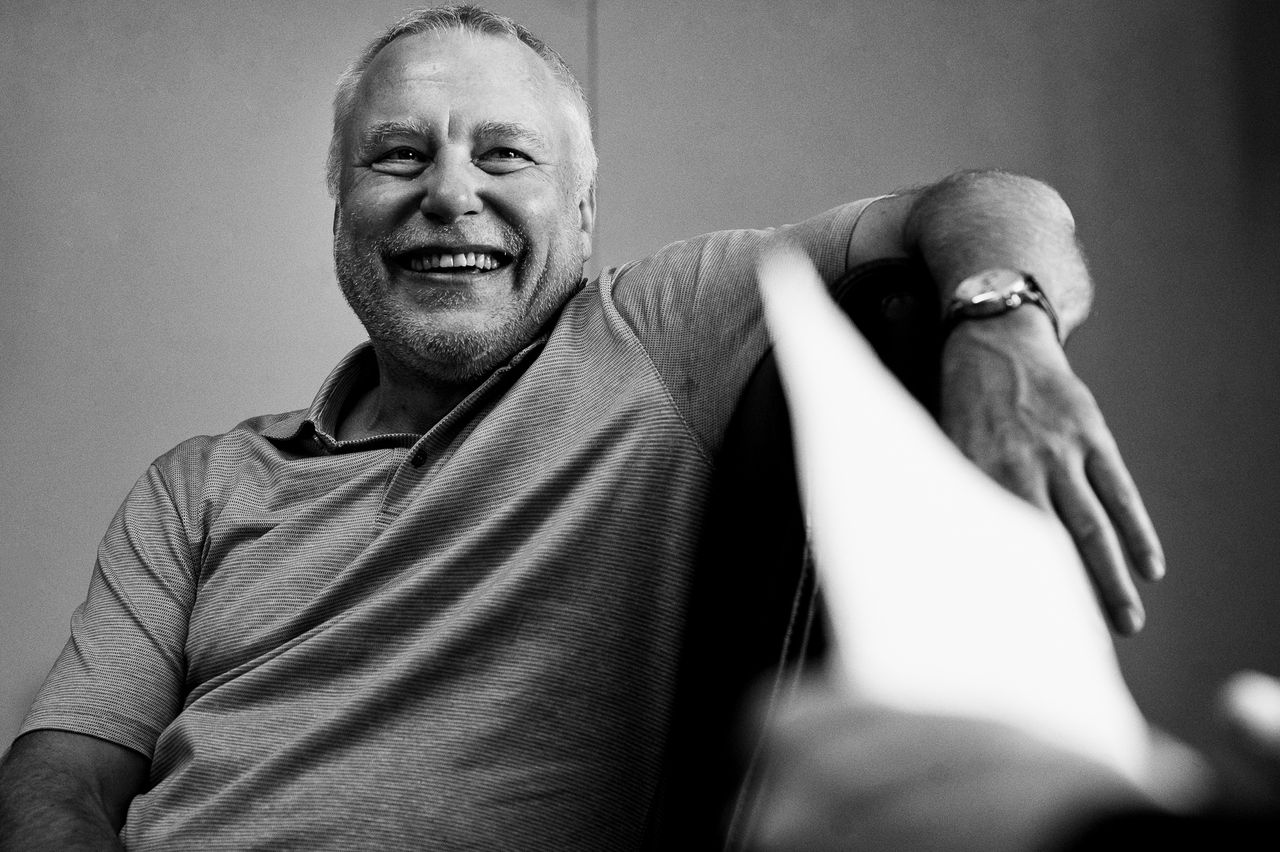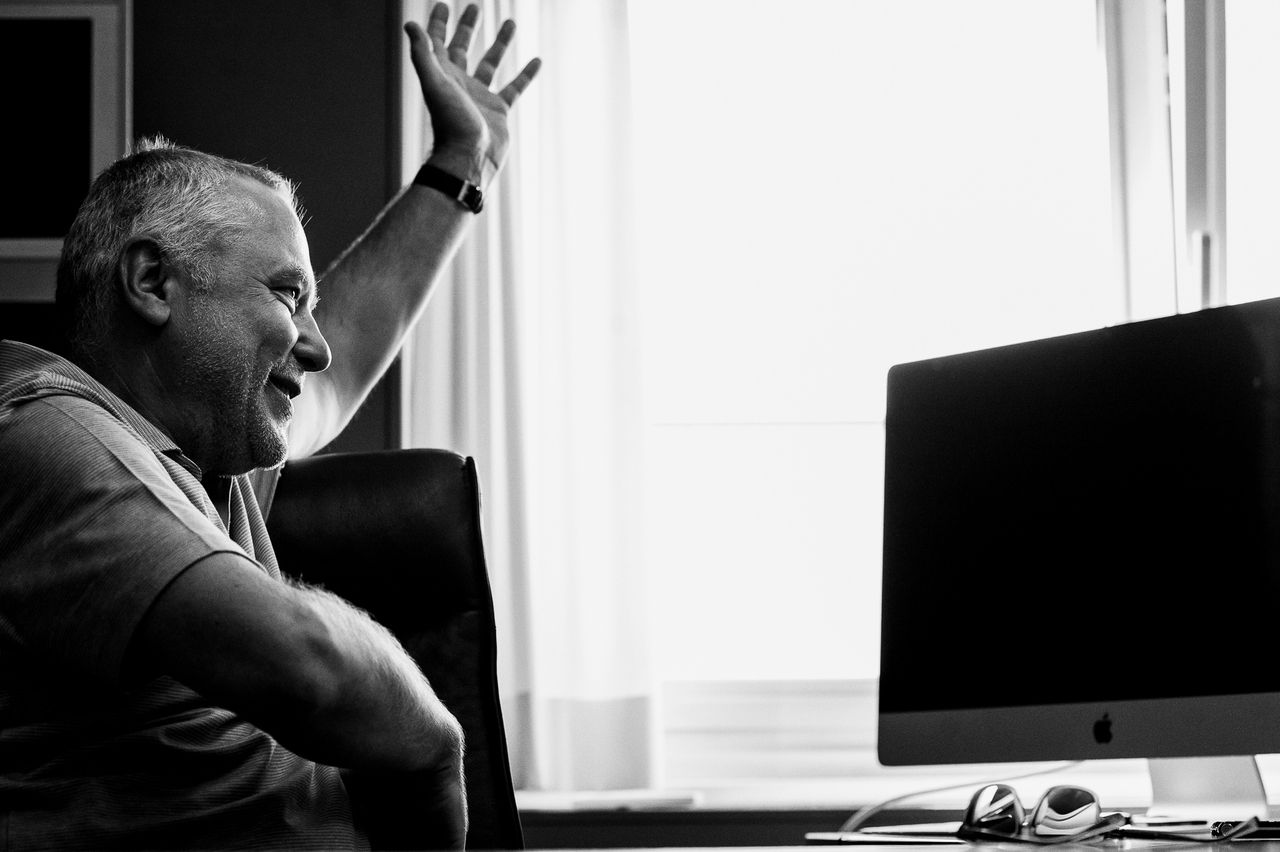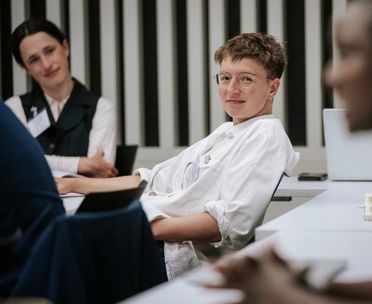

Zdenek Bakala's interview about his cycling team and visions for the whole sport
April 4, 2017
Zdenek Bakala for a Belgian paper Het Laatste Nieuws about cycling and his visions of the sport:
IF THE MANAGER OF THE MOST SUCCESSFUL TEAM IS FOCUSING JUST ON SURVIVING, THEN THERE’S SOMETHING WRONG WITH THIS SPORT
Philippe Gilbert could not have come up with a better time for his astonishing raid. He won the Tour of Flanders under the watchful eye of his boss – not Patrick Lefevere but the Quick-Step Team owner, Zdenek Bakala. Together with his CEO, we enticed him to conduct a rare interview.
Mr Bakala, back in January you already predicted that Philippe Gilbert would be a big surprise this spring. Are you a visionary?
Bakala: ‘It wasn’t too hard. You would have predicted it yourself if you’d spoken with Philippe. To me it is clear that in the last few years he was in the wrong place, and when he moved to Quick-Step he once again had the opportunity to shine that he didn’t have at BMC. I saw a man with a mission.’
Patrick, you like to declare that his revival is due to the team spirit. How can something so simple make such a big difference?
Lefevere: ‘I truly believe in it. In this team everybody lives and breathes the Flemish courses. It is an inspiring and motivating vibe. I’ve said it before: if you’re not a part of it, you don’t belong with us.’
Bakala: ‘This is a unique team in the cycling world. The team spirit runs from the owners through the managers to the cyclists and support staff. Everybody knows their job, everybody has a point of focus.’
It’s no coincidence that you’re in Belgium right now, is it?
Bakala: ‘I try to get here every year during the Tour of Flanders. As a cycling fan, it’s a great day out. I always take my kids along because they also love the Tour. For them it’s a wonderful and entertaining Sunday.’
Lefevere: ‘We breakfasted on a boat by Linkeroever, then sailed across the Scheldt and walked to the team bus. In Sint-Niklaas we watched the cyclists come past twice, and then another two times on the Oude Kwaremont road, where we also lunched in the VIP section. And then we were able to enjoy the highpoint at the finish line.’
On Monday the team's Board of Advisors met. What do you discuss if everything's going according to plan?
Bakala: ‘We do not focus on the day-to-day management; we try to safeguard the future of the team. I think that in the next month or two the outcome will be clearer.’
Patrick, you believe Gilbert’s victory will be important for bringing potential sponsors on board. “If they don’t get it now, they’ll never get it,” you said.
Lefevere: ‘I think that without us the tour will be boring, and sponsors know that too. I haven’t yet managed to get anybody to sign up for 2018, but I’m not nervous about it. By now I’m quite used to this – every two years we have to fight to survive.’
Bakala: ‘And that says it all. If the manager of the most successful team is just focusing on surviving, then there’s something wrong with the way in which this sport is organized. Cycling cannot continue to exist in its present form. There is simply too much uncertainty for the teams. Every two years your team is under threat of falling apart, and then you’ve got to start from scratch once more. I want that threat t o disappear – there has to be a new foundation for fundraising, which will see the sport developing with immediate effect. The teams, the competition organizers and the UCI will have to create a financial model that appeals to everyone. I believe that there is a quiet rise in the momentum to create change.’

Zdenek Bakala, photo Ruth Wytinck
Why do you think so? People have been saying for years that cycling is not viable.
Bakala: ‘The process has indeed been going on for years, and it will still take another two or three years to get anywhere, but a great deal has already been done and there has been much diplomatic manoeuvering. In a few weeks I’m holding talks with Brian Cookson (president of the Union Cycliste Internationale, ed), as there are still a few ideas I want to present to him.’
Can you name a few?
Bakala: ‘I’ll give you a few general examples. The pay ceiling gradient has already been brought up a number of times. The sport needs this discussion, and if we do not take this step it will become increasingly difficult to run a successful team. I don’t want to name any names, but right now there is a team with a major champion that cannot give their team leader the support he needs. It’s the same as in football – you cannot have clubs spending all their cash on one star and thus unable to develop any other skills.’
Lefevere: ‘A footballing acquaintance also recently observed that, “You’re tackling the issues the wrong way. You’re almost begging for sponsors. The idea is that companies should be proud that they can sponsor you.”
Bakala: ‘Exactly.’
What other ideas have you come up with?
Bakala: ‘I don’t have any miracles for coming up with cash, but I do see options: crowd-funding, online merchandising, and so on. They might not be able to finance an entire team, but every bit helps.’
What about charging spectators to watch the races?
Bakala: ‘There are two sides to that story. There is no tradition in cycling for charging admission fees, and the courses are not suitable for that either – there’s no stadium that hosts the race. But the Tour of Flanders is proof that it can be done to a certain level. The Tour can be pioneering in that respect. For example, you could erect a stand on the Oude Kwaremont road next to the VIP tents for the ordinary supporters, together with the basics such as toilets and drinks stalls.’
You’re aware that it’s a sensitive issue?
Lefevere: ‘Just as sensitive as showing the racing on a pay-TV channel.’
Bakala: ‘Belgian cycling fans have the God-given right to watch their races. I know that things are precarious, and people will feel as if they’ve been robbed of something. That’s why you must ensure that there’s still scope for those who do not want to pay, who don’t want to sit in the stands, but just stand beside the route. These formulas can exist side-by-side.’
You’ve been the biggest backer of this team for six years, even though none of your companies feature on the shirt. Is it just because you’re a fan?
Bakala: ‘That is one of the reasons. The other is that I think it is an interesting case from a business perspective.’
You’re treating it like an experiment?
Bakala: ‘No, it is a challenge. If we no longer have to subsidize the sport and we can make it self-sustaining, then we’ve won.’
You’ve promised that you will continue to fund the team over the next few years.
Bakala: ‘I want to continue this project. But the ultimate intention is that the team can carry on without my support. If I was hit by a bus tomorrow, the team cannot flounder.’
So there’s no bottom line to your support, but Patrick has to take your word for it.
Bakala: ‘That’s right. Patrick, have I ever let you down?’
Lefevere: ‘Without mutual trust, we wouldn’t be sitting here today.’

Zdenek Bakala, photo Ruth Wytinck
Your presence is the strength, but conversely also the vulnerability of the team. What happens if you fall in love with another woman and suddenly devote yourself to a different hobby?
Bakala: (laughing) ‘That’s impossible. I already have the best woman in the world.’
But still… when there’s a signed sponsorship deal in place, the team manager knows exactly what can be done. At present the team is reliant on your goodwill.
Lefevere: ‘Let’s turn that around: I am grateful for all that’s already passed. Don’t forget that back in 2010 we were on the point of demotion to the ProContinental division. This man here saved our skins. If he were to tell me now that six years was enough, I would thank him for those six years. No sour grapes here.’
Bakala: ‘And I’m not about to suffer another midlife crisis – I’m 56 - been there, done that.’
Lefevere: ‘I’m 62.’
Are you considering retirement?
Bakala: ‘Patrick? No! What do you think? Belgian cycling will miss him.’
Is his successor not an issue for the team’s future?
Bakala: ‘It’s actually a major issue. Before Patrick steps down, we must have somebody to take his place. At present we do not have any plans for a successor, so he can make the decision. There has not even been an official decision that such a plan is necessary, so we’ll have to convince him to carry on a bit.
But the departure of Tom Boonen is looming.
Bakala: ‘It’s the end of an era for Belgian cycling. Tom is unique – 150 victories, I think (148, ed). He has done so much for cycling; he was the rock star of this sport and that draws fans and spectators and, in turn, sponsors. He’s not only a great athlete who wins races, he is also a personality that makes the sport appealing. Even the minor occasional scandal plays a part in that. They also play a part in life.’
People such as Boonen and Sagan are magnets, but at the same time they’re the first to suffer from a pay ceiling.
Bakala: ‘That’s correct – it’s an inherent conflict, and there are a lot more of them on the circuit.’
Is there a future for former cyclist Tom Boonen in the team?
Bakala: ‘That’s entirely up to him. If he wants to, we’d love for it to happen. But I think that Tom still wants to win a race.’
Lefevere: ‘We don’t want him to lose his focus because of discussions like these. Paris-Roubaix is his big ambition. Starting next week we can discuss his role in the team. In fact, on Sunday he told me that we should have a chat. “I’ve never been in the Hof van Cleve,” he said. “I want to eat there sometime and talk about my future.”’ (laughing)
Do you see him as a sport director?
Lefevere: ‘He certainly won’t become a director. Tom’s biggest value is in the mechanics and bicycle design. He is both very good at and also very interested in how to make bicycles go faster. He also loves fast cars – not a big difference. We’ll see what Tom does. Most recently-retired cyclists say they only want to work part-time, but most also soon eat those words. They can’t do without it – they love the circuit too much. And sitting at home with the wife and two kids is not a day job.’


